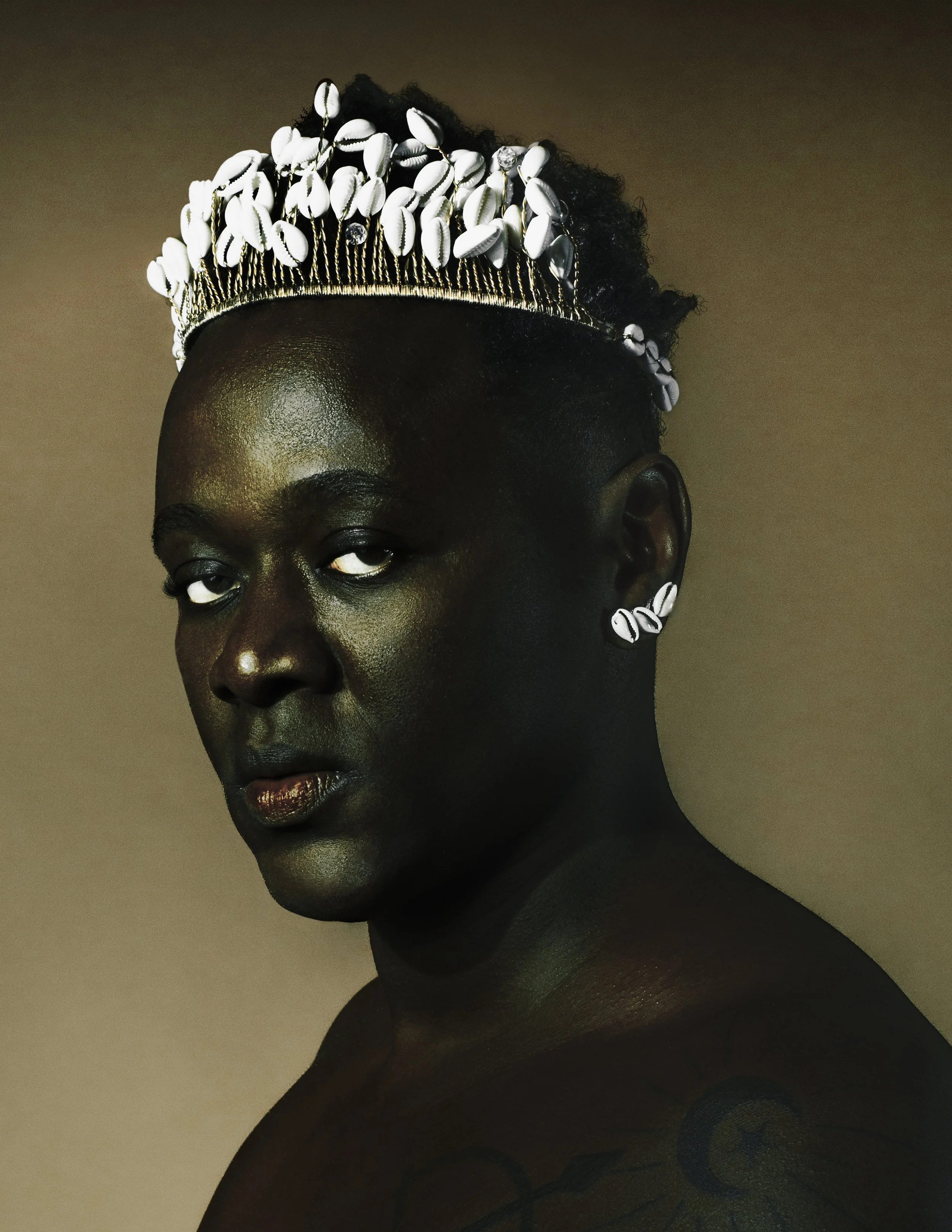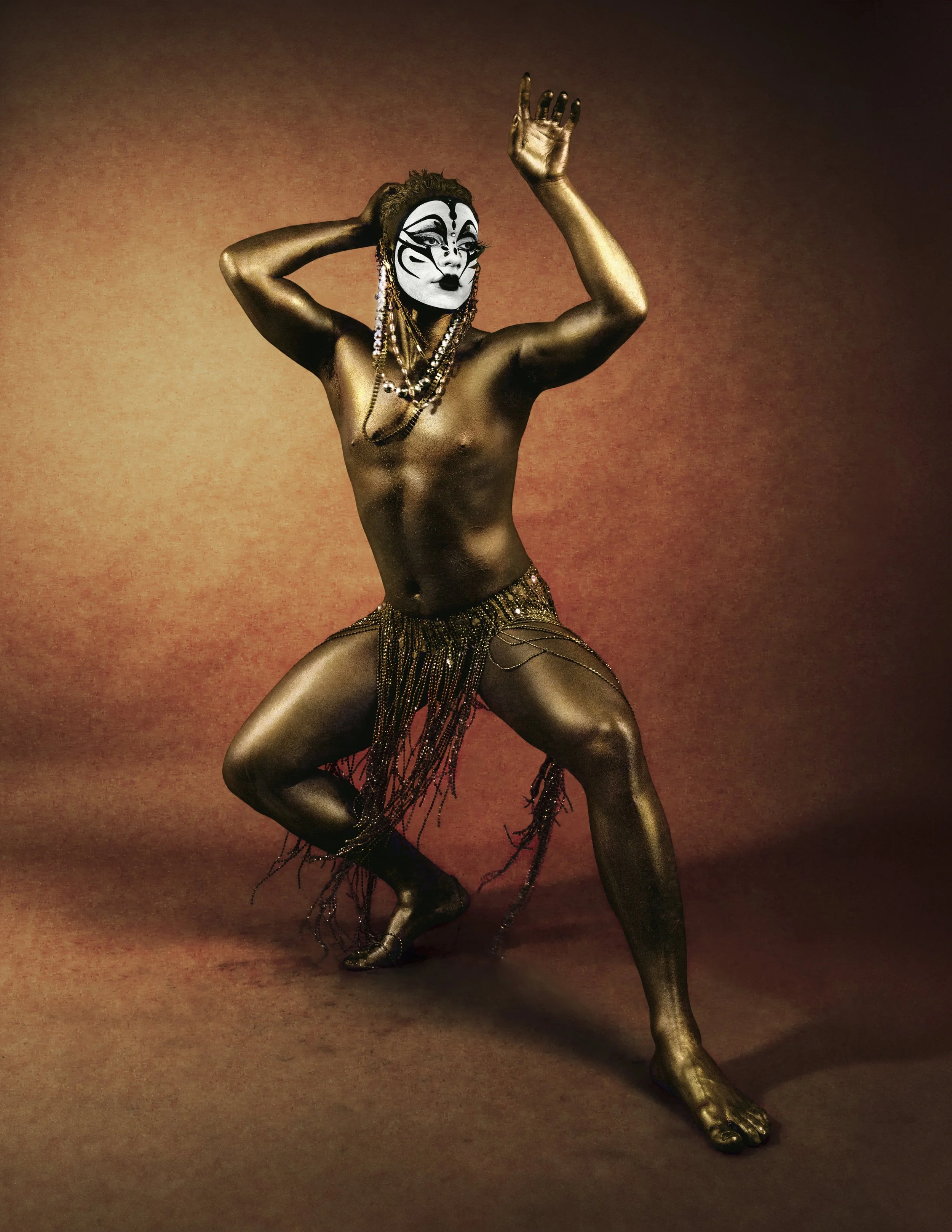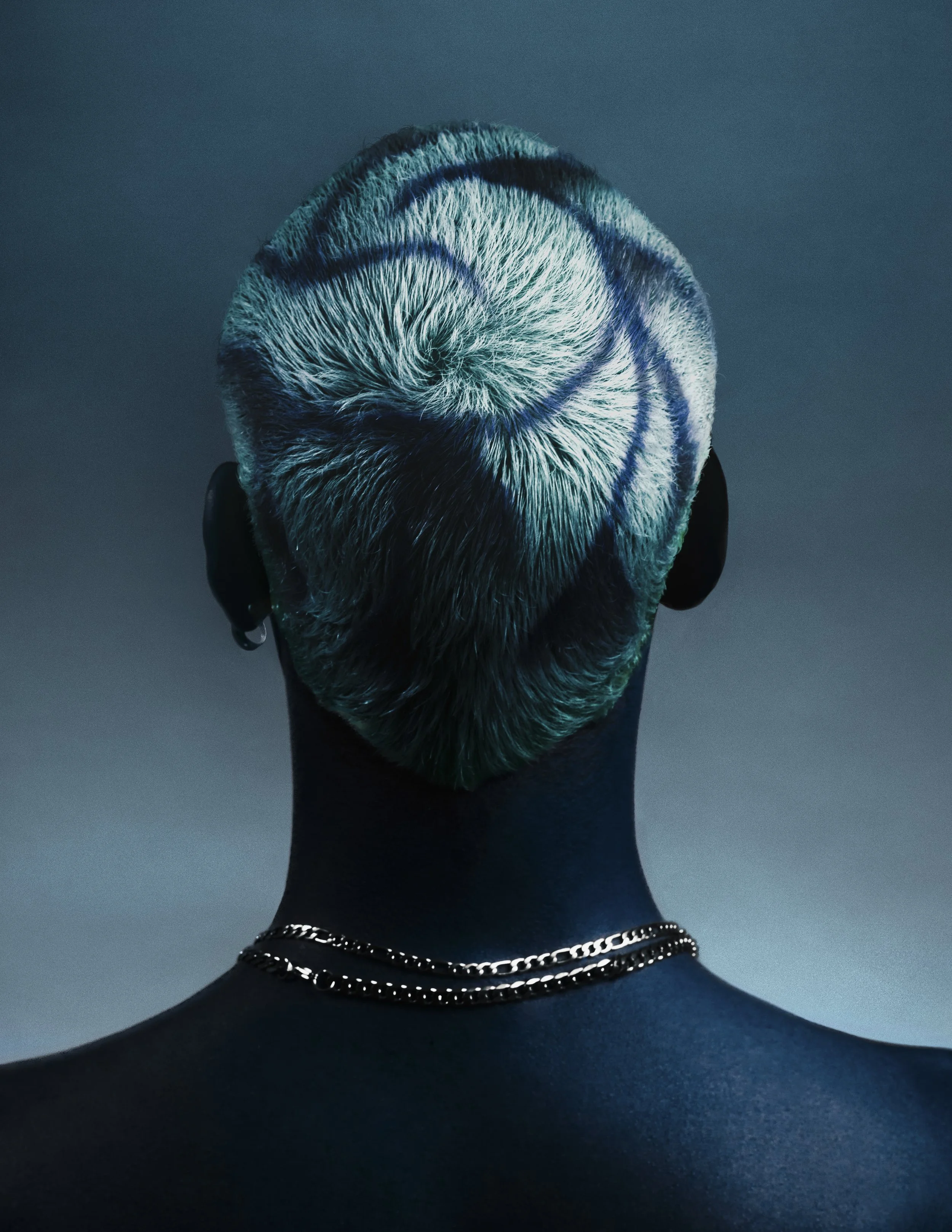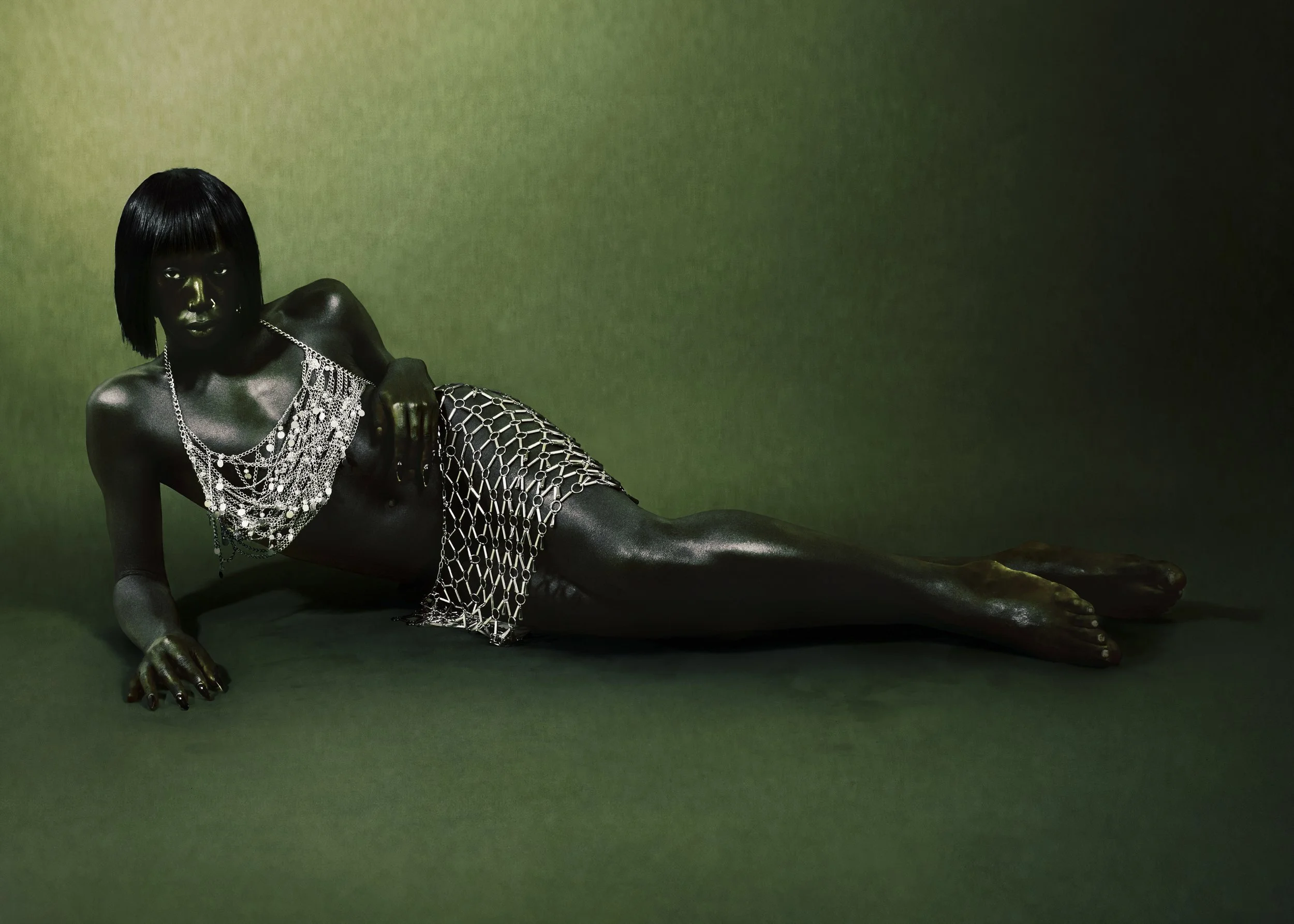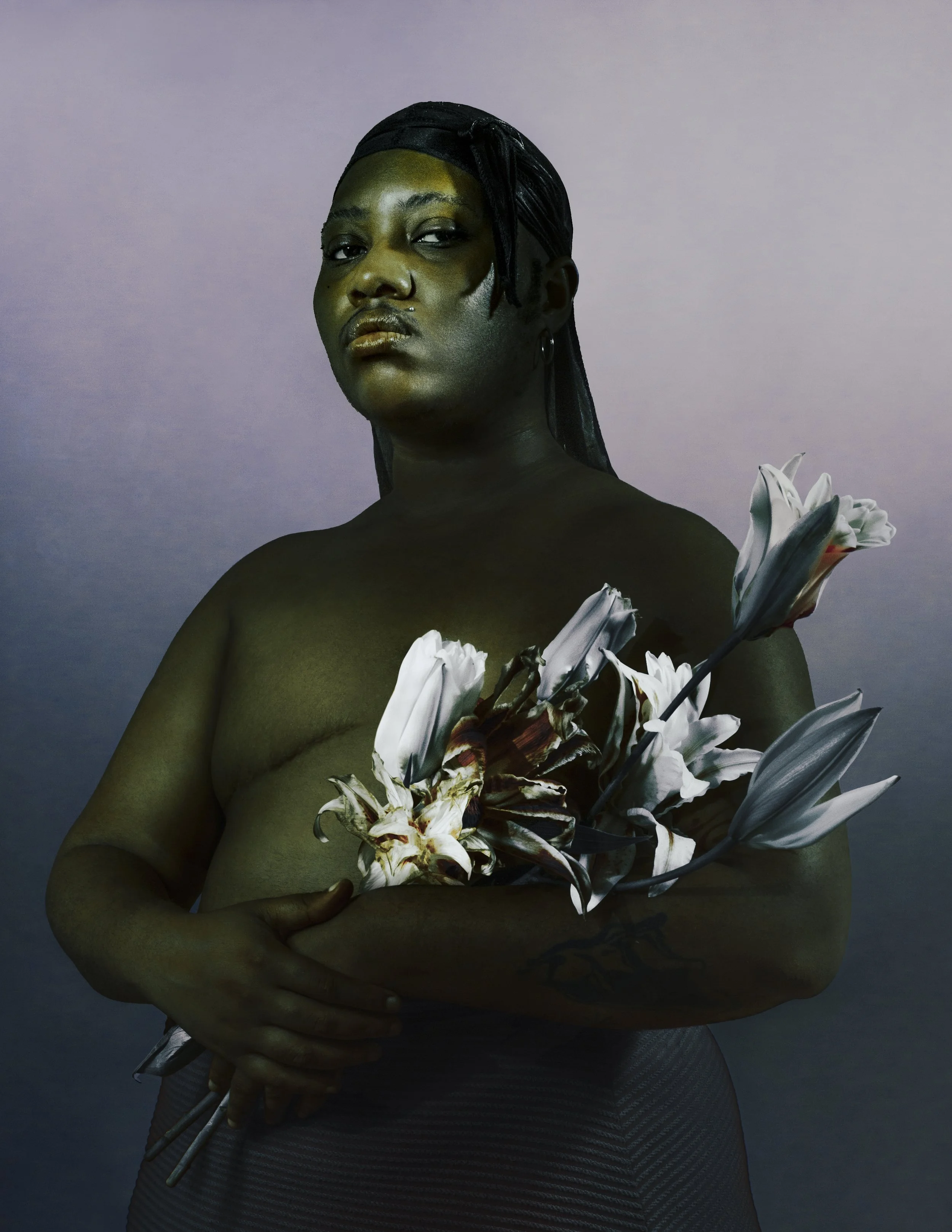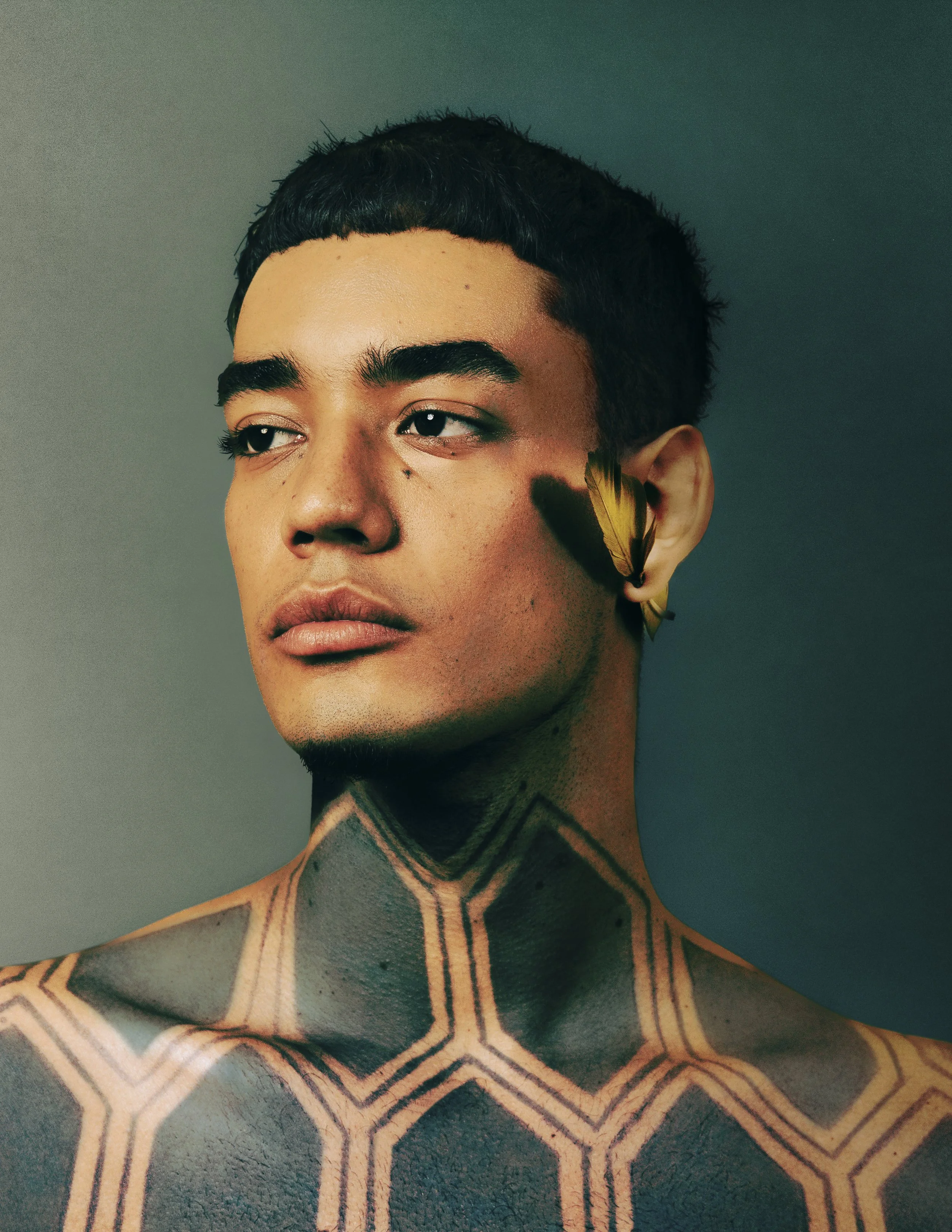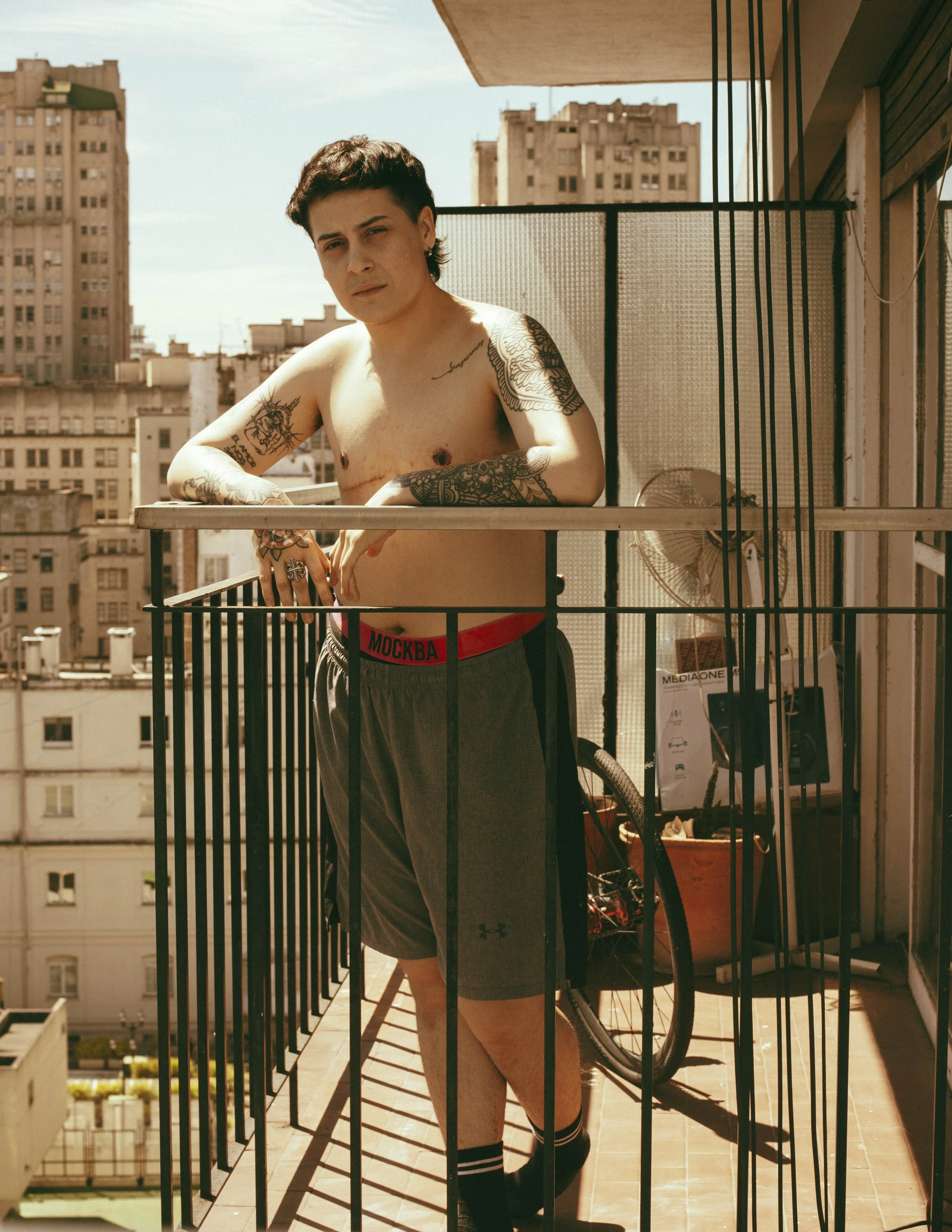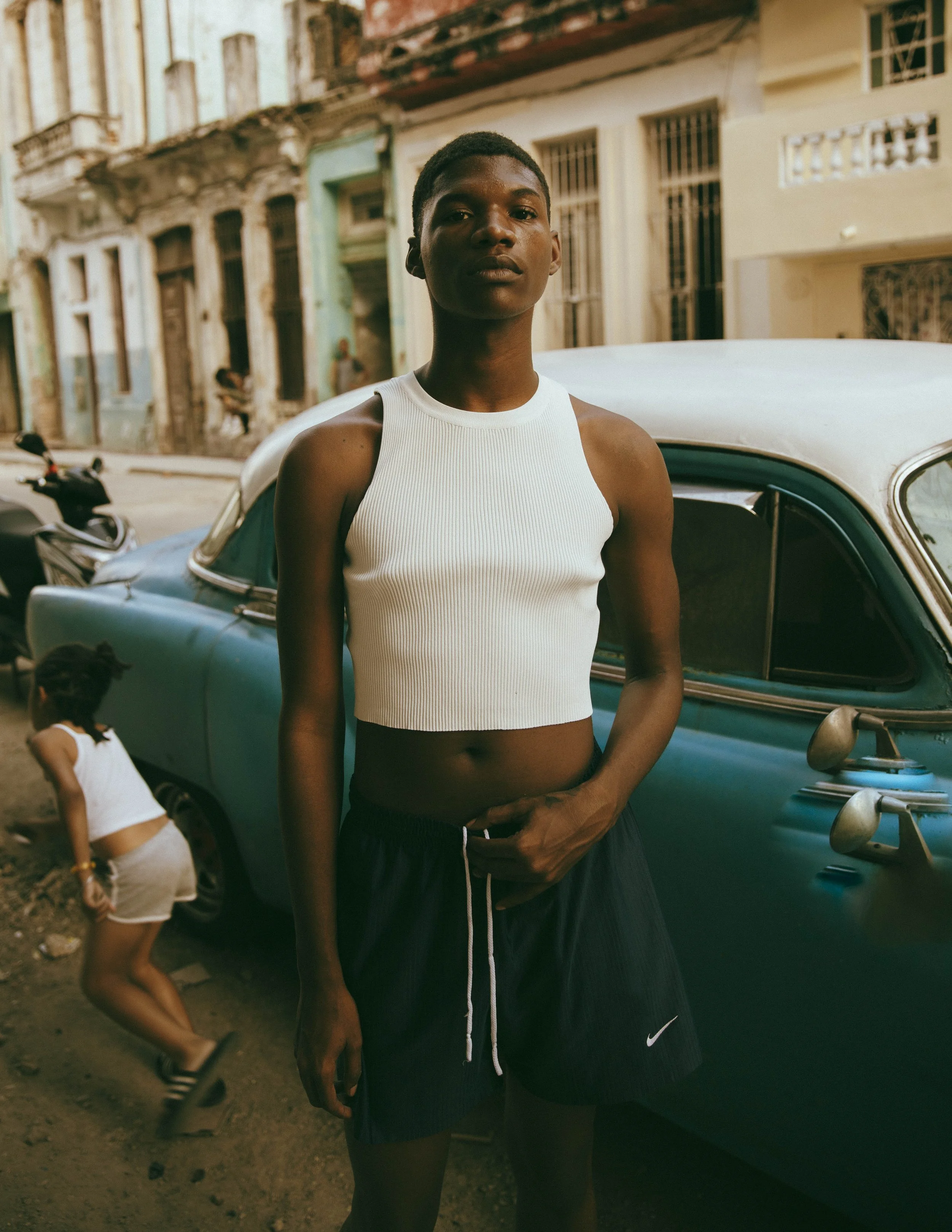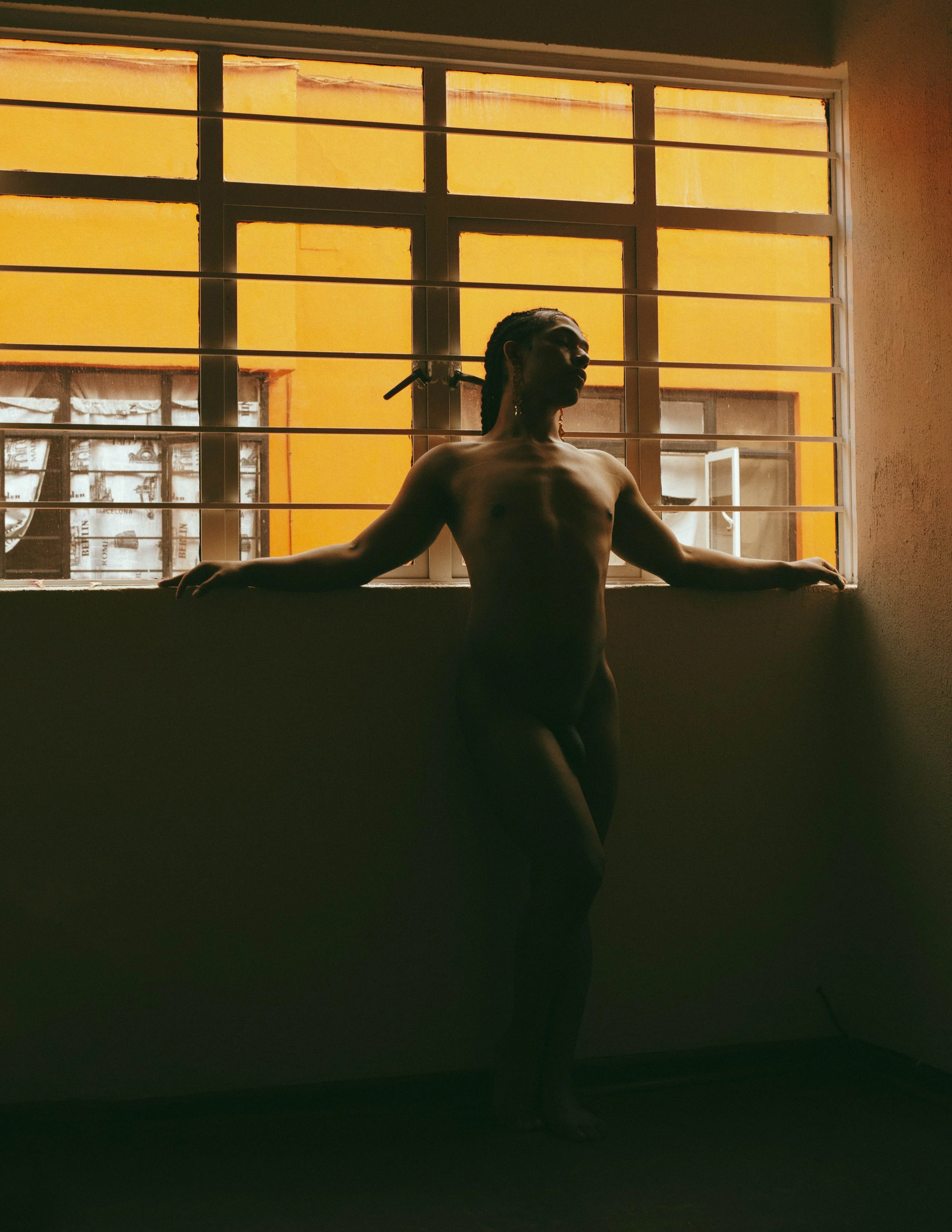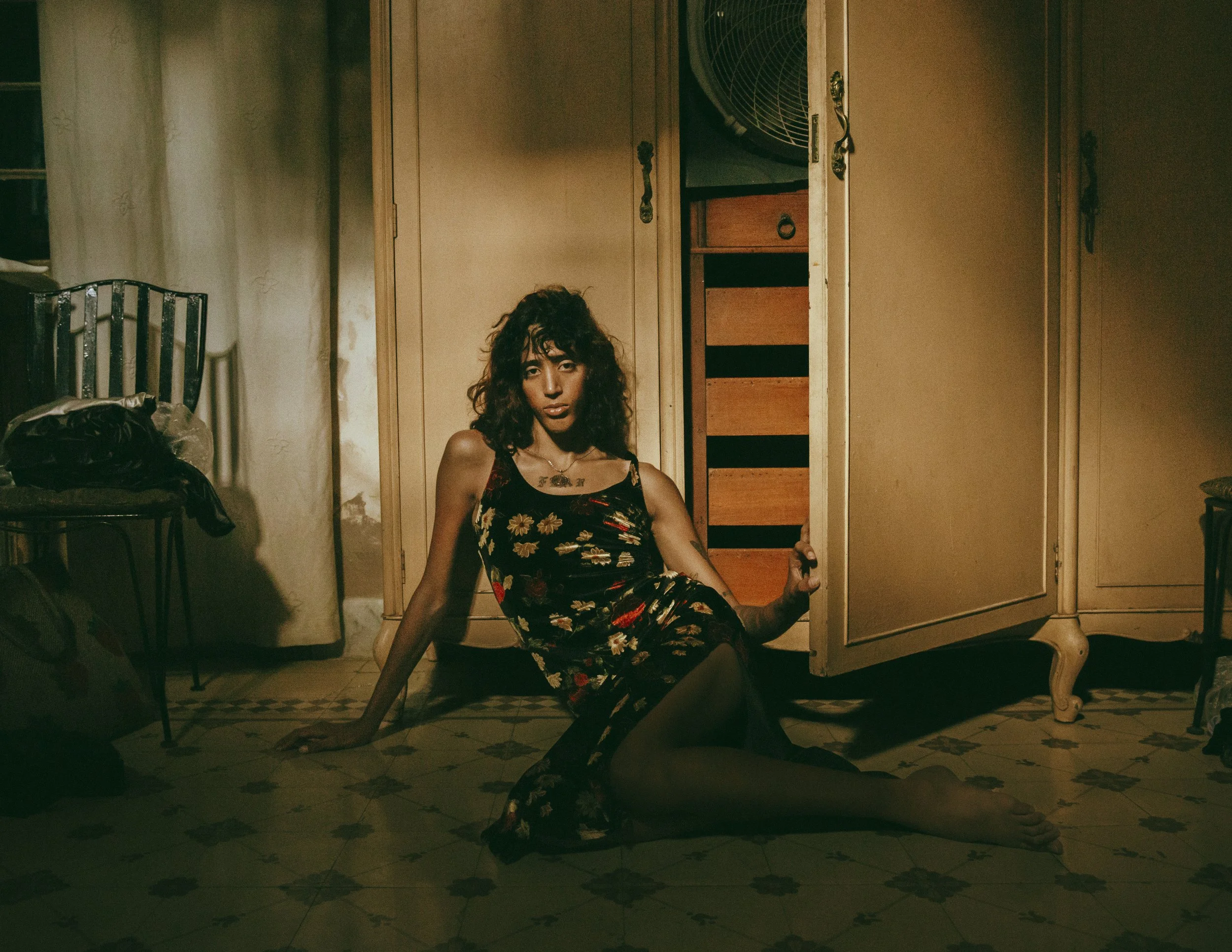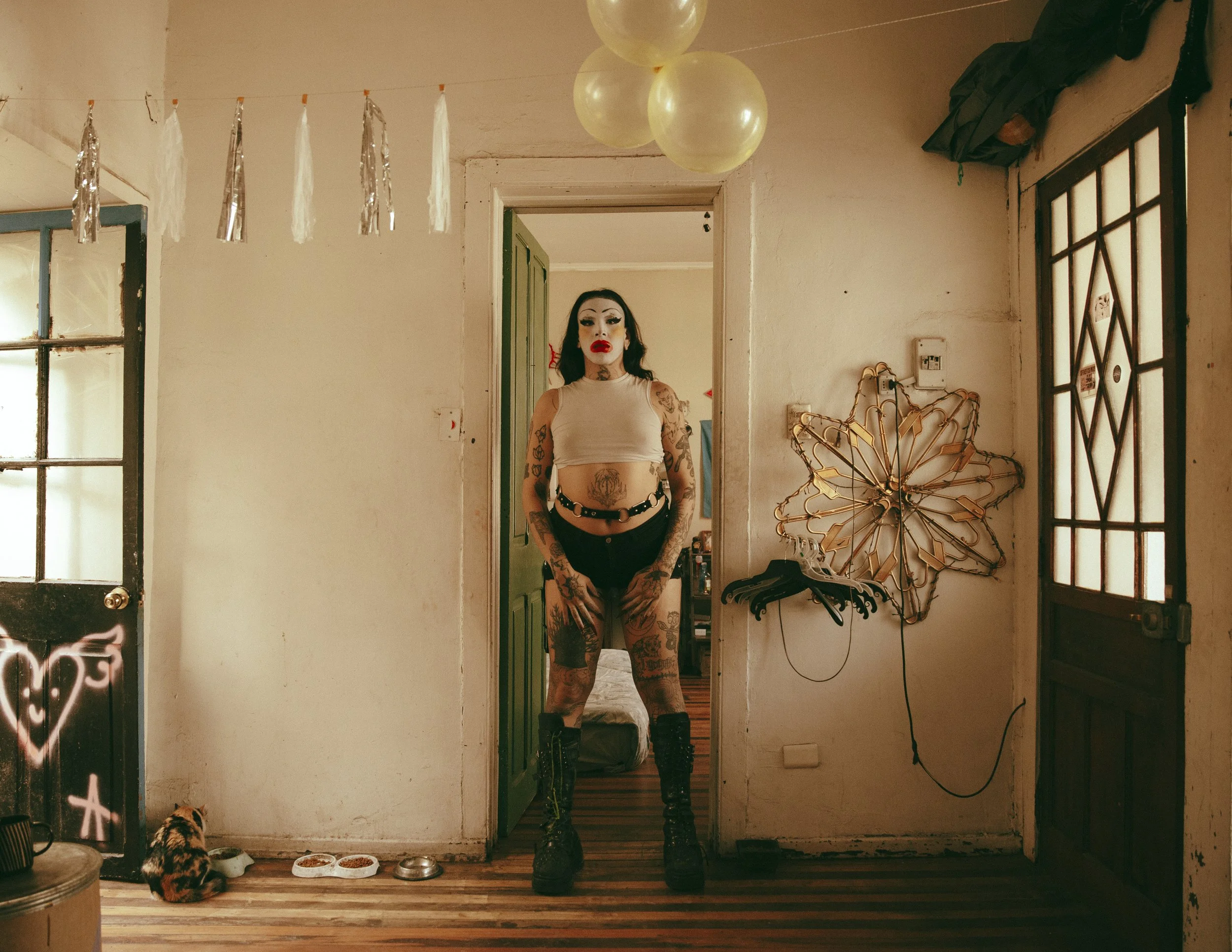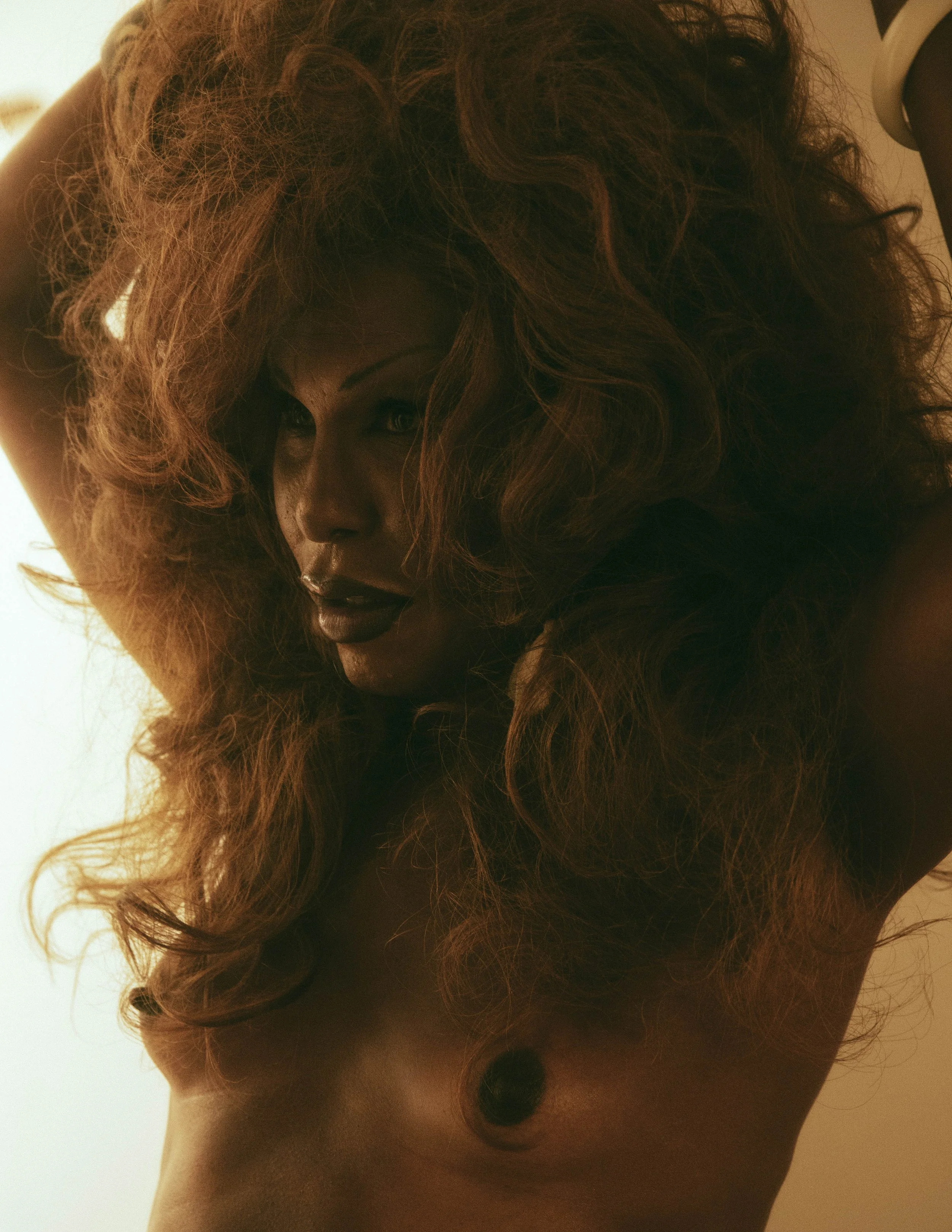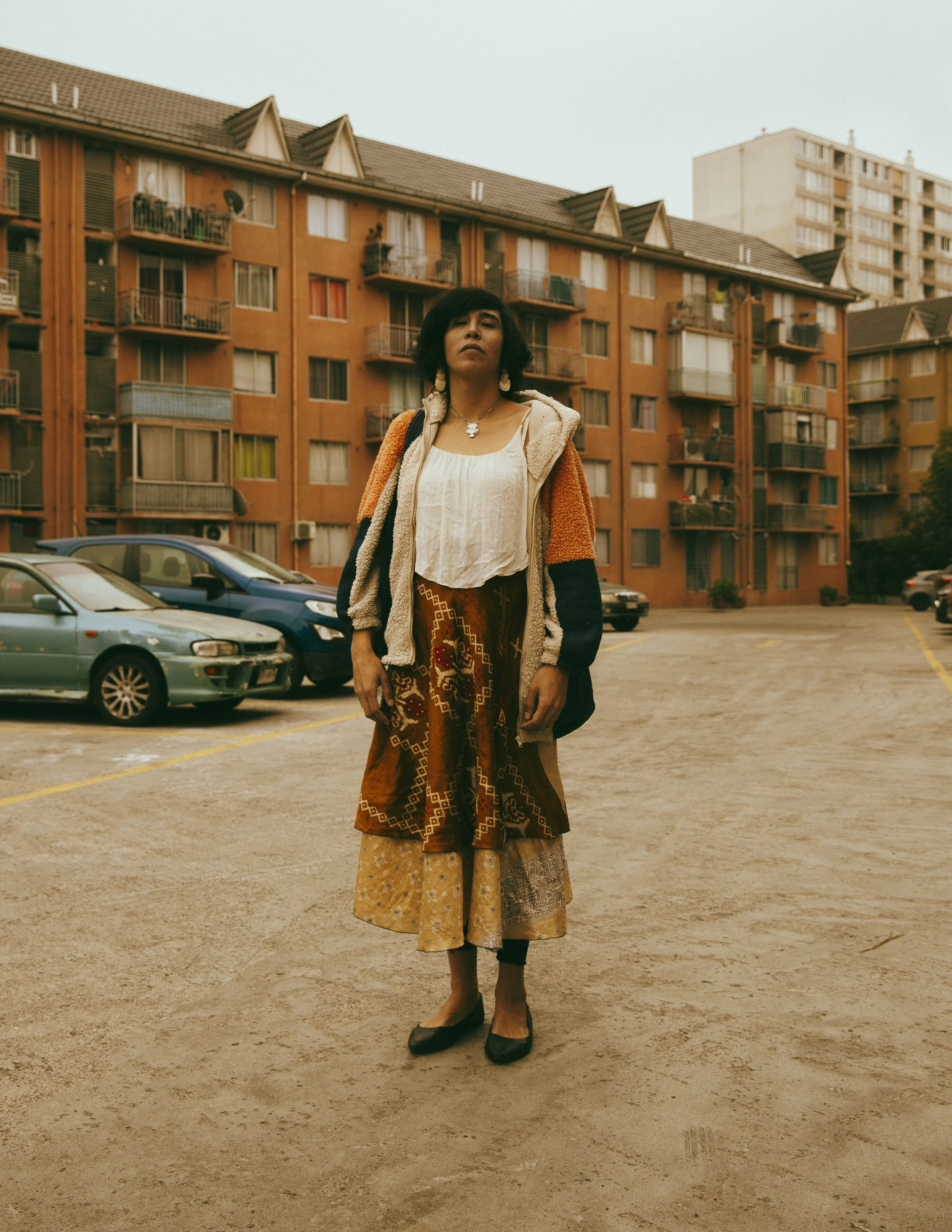LOVE AT RISK
ASAFE GHALIB
Some moments in life only happen when we are open to them. Breathing deeply in a windy forest, it felt the pull for change, a kind of transgression. Inside, I began to hunt for the pleasure of being alive, existing, and insisting that, above all, I am a soul first.
In this piece, we present stories that fictionalise reality, stories that have been neglected by society. They unfold in a folkloric and ludic world where we can feel resilience toward those who come against us. In the world we create, our community is the protagonist. Each of these bodies has an influential impact on the scene in Rio de Janeiro's neighbourhood's.
Every stab of shame that pulls lives apart, every pang of uncertainty and yet, we are here, afraid, but present. For if we cease to feel anything at all we lose track of what causes us pain, not to mention what excites us, delights us.
There was no longer any division between reality and fantasy. It’s a narrative in which dreams, having taken shape, inspired by our belief in magic. It felt like unlocking the most pure and dangerous part of childhood, exposing this infernal light within me.
The joy of contemplating our bodies, the tenderness of our senses, the desire to look into each other's eyes through the most trivial gestures, choosing ourselves on the way to happiness and alerting us to the danger among us. Divinity isn’t something we wait for in death; it’s here, available to us.
Luan and the Movement of the Warriors
Challenging the norm of a body shaped by imposed social choreography is an act of rebellion, an exodus that places them on the margins of the conventional, a warrior fighting to de-choreograph these movements, Luan carries with him the strength of their entities, awakening the desire for a new beginning. This act creates a narrative that celebrates both individuality and ancestral legacy. It serves as an invitation to self-discovery and a rejection of society's limiting expectations.
The Dance of the Soul
Challenging the norm of a body shaped by imposed social choreography is an act of rebellion, an exodus that places them on the margins of the conventional, a warrior fighting to de-choreograph these movements, Luan carries with him the strength of their entities, awakening the desire for a new beginning. This act creates a narrative that celebrates both individuality and ancestral legacy. It serves as an invitation to self-discovery and a rejection of society's limiting expectations.
Wesley and the Whispering Tides
In the heart of favelas, Wesley was born beneath a sky painted with sea-green and storm-grey, seen by many as touched by luck’s mysterious hand. His skin shimmered faintly blue under the moonlight, a sign his mother believed was the sea’s blessing. While others saw something strange, Wesley felt a quiet power within him, responding to the rhythm of the tides. Night after night, he stood by the shore, listening to the whispers of the sea, and poured his soul into writing stories and poems inspired by his surroundings. When a fierce storm struck, with lightning illuminating the turbulent waves, Wesley stepped into the water, not to drown but to transform. His words carried his strength, proving that even in the face of injustice, words and imagination can turn curse into hope, and reminded everyone that the ancestors, and the gods still live inside those who dare to dream.
Songs of Hub
Hub had been singing since she was a child, her voice carrying a quiet, instinctive presence. Her family believed that music was more than just sound, it was a sacred way to awaken the senses and connect people on a deeper level. For her, her voice was like a lighthouse cutting through darkness, guiding her on a journey of discovery and inspiring her to explore new horizons. Each song served as a bridge, bringing people together through shared understanding. She recognised that her voice was rooted in ancient, meaningful language, and every prayer was a rite of passage, an act of renewal, a steady reminder of the enduring power of song to inspire harmony and growth.
The Fields of Lorre
Lorre uses art as a weapon and the heart as a shield. His performances, full of grace and strength, touch even the most hardened hearts, transforming adversities into hope. As a silent witness, he believes in love and diversity, fostering a sense of community and a place of inspiration. While performing, the fields shine, celebrating his existence in its deepest truth, life calls us to be alive with fire and grace.
Mandu and the Refuge of Dreams
In a warm land, where the sun caressed his skin and the soil pulsed with the energy of unseen worlds, Mandu, in his refuge, merged dreams and reality. Whenever he closed his eyes, he glimpsed romances yet to come. In secret, he sketched memories, deep feelings, intense desires, gestures that sometimes seemed on the edge, ready to announce storms. Over time, he filled his pages with stories of courage and unexpected encounters, learning that magic lies in the capacity to permit oneself to be fully open. Whenever he needed, he would return to his refuge, where love, patience and quiet, awaited him.
LOVE AT RISKII
The movement of LGBTQIA+ people toward capital cities in Latin America is a well-documented social phenomenon. It occurs for a variety of reasons and motivations, including seeking safety from violence and discrimination, increased visibility and acceptance, access to better legal protections, opportunities for employment and education, and the presence of established LGBTQIA+ communities and support networks. Additionally, many move in search of personal freedom, self-expression, and the chance to live authentically in environments that are more inclusive and affirming. Staying in their home town often stems from a desire to fight for improvements, refusing to be confined by restrictive structures imposed by family, religion, or tradition.
This series captures their journeys through photographs taken in urban centres of Cuba, Colombia, Venezuela, Chile, Brazil, Argentina, and Mexico. Each image reflects how we confront life within systems of oppression, highlighting moments of rupture and transition, as well as strategies of action and creation in an unequal setting. It offers a way to reconfigure the erasure of our community in Latin America within the contemporary global landscape. These people show that it is possible to live in our land with all the challenges; this is our place.
Change reshapes intimacy and identity but it also deepens our capacity for compassion and solidarity. Every cross-border step is fraught with risk, yet it can also be a testament to brighter futures. These stories reclaiming the right to dream and to find comfort in the new beginnings in Latin America.
At its core, this project celebrates the preservation of social bonds and self-care, offering support and visibility for urgent issues, with remembrance and connection serving as sources of refuge. We are travellers, rebels, dreamers and above all souls first, seeking a horizon where existence itself becomes an act of love.
Har - Buenos Aires
I've decided to start this journey in Buenos Aires. This is the first image of the project. I walked into Har's house, and on a very sunny day, as the door swung open, I saw his mom cooking in the kitchen. He had just had top surgery, and he reached out to give me a gentle, heartfelt hug.
We began thinking about how he wanted to be seen and remembered. He mentioned that a shirtless photo could capture a dream he’d always held a vision he’d imagined for himself and serve as a testament to progress and a reflection of these times.
Later, outside, he took off his shirt and shared more about himself:
I'm Har, 29 years old. I'm a DJ, actor, and music producer. I also work as a national operator for the Argentine Healthcare System within the Ministry of Health.
Reflecting on his journey, he softly said, "The beginnings, the fears, the small victories. I started my internal transitions long before any external changes."His mother quietly appeared behind the camera, crossed her arms, and looked at him with sparkling eyes, silent but proud.
He often says, "It is healing in every way."
Lucero - Buenos A
My name is Eva Lucero, known as Lucero. I’m from Rosario, and I’ve been living in Buenos Aires for about a year. For a long time, I’ve been carving my artistic identity, exploring roles and reconnecting with myself. My journey has been deeply personal, challenging fears, insecurities, and internal voices that tried to define me.
Deciding to leave the city where I was born and venture into other scenes in Buenos Aires and Córdoba marked a turning point. It was a declaration of owning who I am and why I came into this world: to give show, to reveal my truth. As a trans woman, Buenos Aires has been both a place of opportunity and confrontation, a space where I confront society’s expectations and my own fears. My art is raw, intimate, and rooted in my deepest pains, transforming vulnerability into a brighter future.
Living here has taught me that authenticity is the ultimate act of rebellion. To be trans in Buenos Aires means to fight for visibility, to reclaim my voice and my space. Every step I take is not just about survival, but about embracing the profound beauty of my truth and–through art–offering it as a gift to others seeking their own freedom.
Andy - Havana
“I live alone with my mother; my father has passed away, and I have a brother who is in prison. Life has been tough, there’ve been days when everything feels heavy, when fear seems to take over. But I’ve learned that living alongside fear is possible. I believe that if we only cared about fear all the time, we wouldn’t really be alive. Fear is part of us, just like joy or sadness.
Every moment of shame that pulls us apart, every doubt that makes us question ourselves, despite all that, we keep going. We are here, afraid, but also present, because if we stopped feeling anything at all, we’d lose track of what causes us pain and, more importantly, what makes us happy, what excites us.
I’ve learned that embracing those feelings, even the uncomfortable ones, is what keeps us grounded. Life in Havana, with all its struggles, has taught me that. It’s not about pretending everything is perfect, but about finding strength in what we feel and learning to keep moving forward, one day at a time.”
Dani - Havana
Dany Ortiz, is 25 years old and grew up in Alamar, East Havana, where he still lives today. Living in Alamar, like many places in Havana, is an experience of contrasts, full of challenges but also full of achievements and things to appreciate.
“My experience as a trans father is living parenthood in a very universal way. Gender identity does not compete with the role of a parent; on the contrary, it strengthens it. Living authentically as who I am is the foundation that allows me to be a present, stable, and loving father to my daughter, who accepts me naturally as her dad. The balance doesn’t come from separating these two parts but from integrating them. The responsibilities are the same as those of any parent. This experience has given me an opportunity to redefine notions of family, demonstrating that its core is love and commitment, not biology. For my daughter, being inclusive is the norm. Without even trying, I have become a living example that authenticity and paternal love are all that truly define a father"
Nars - Havana
I met Nars in Juárez, central Mexico City. We hadn’t planned anything, I got her number from someone I photographed the day before. She asked if I wanted to come up for the photos, welcomed me into her apartment, and began introducing herself.
I’m La Nars, 25, a trans woman, artist, dancer, and event organizer for the trans, Black, and Prieta communities. After a few minutes into our conversation, she shared that her plans were interrupted when COVID arrived in Mexico, forcing her to return to Cancún. She finished university online and searched for work, but faced her biggest challenges: the loss of her grandparents and uncles to COVID. Soon after, she tested positive for HIV. She initially faced it alone but soon realized she needed support. The murder of a person living with HIV in Cancún for disclosing his status deeply affected her, fueling fears of being discovered and recognized. But those fears no longer control her life.
With her savings and dreams, she moved to Mexico City, telling herself, “Whatever comes, will be good.” Since arriving, she’s discovered a strength and self-worth she never knew she had. Embraced by her chosen family, she knows she can always find a safe, understanding space. Here, she breathes and she is.
Rich - Havana
My name is Richard Castillo Castro, and I come from Havana, Cuba. Havana’s a city full of life, it speaks to my soul, the rhythm, the history and it’s a place where most LGBT folks end up, because it offers a bit more freedom, a sense of community, and a chance to be yourself. My parents are my confidants and the core of who I am. When I finally shared my truth, something they had probably guessed they looked at me with kindness and said, “What is known doesn’t need to be asked.” That’s a phrase I’ll carry forever.
Life hasn’t always been easy, I’ve faced harsh words, doubts, and at one point, I almost gave up. But I found my way back. Now, I’m just being me. If my truth makes you uncomfortable, then look elsewhere and be mindful of where you’re directing your gaze. Being on the land that holds my culture is a privilege that comes from not being afraid. I was born in the south, into a poor family, on the periphery, and I’ve never had fear of the street.
Fifi - Buenos Aires
One of those dysphoric Sundays in Buenos Aires. I’m a tango singer, usually able to handle the blues after a long vampire weekend, but that day, a young, hot photographer showed up at my door a day earlier than expected. I tried to improvise powerful femininity, but soon realized my sadness was bigger than me. So I summoned my saint, San La Mostra. Latex makeup, my armor to fight against the pressure of being hyper-femme as a trans fat femme. When I enter that state, my emotions run free. I feel power in being true to my low astral.
When I’m lost, I think sex is the only thing I can trade. But that day, faced with a Brazilian boy overdressed in European clothes, I felt something else, an ancient connection. Like I could show him my rawest self. Can you feel the power of my sadness and want me anyway? I told him about my grief: losing my father, the deaths of friends, contemplating the future in this crazy world. Over the years, I’ve been creating rituals new ways to challenge and meet death. For me, as a trans artist, death is another friend someone I should laugh with, dance with, stay up late with, and always negotiate with.
Fifi Tango is a teddy-trans, non-binary artist from Misiones, at the tri-border of Argentina, Brazil, and Paraguay now based in Buenos Aires. She’s a curvy, hairy, high-femme host who swings between softness and chaos. Her performances blend drag, witchcraft, kink, and tango into a raw, unforgettable spectacle.
Savhána - Santiago
Savhána Anikila is a trans woman ballroom performer from Santiago, Chile. She describes her experience by saying, "There is no longer any division between reality and fantasy. It felt like unlocking the most pure and dangerous part of childhood, exposing this infernal light within me. A betrayal of family beliefs, yes, but also a profound act of liberation, a renewed sense of intimacy with life itself. This journey has been an exhilarating rebellion against societal norms and internalized fears, a reclaiming of my own truth through radical authenticity. It’s about embracing every facet of myself, even those that were once kept hidden or considered shameful, and turning them into sources of strength and creativity. That dangerous innocence, that wild, unfiltered aspect of being alive, has become my most powerful tool. It’s a constant dance between vulnerability and power, shame and pride, chaos and clarity. I believe that when we dare to confront these depths, we find a fierce liberation that redefines what it means to truly live. For me, this is not just performance; it’s a spiritual act of self-acceptance, an unmasking of the divine chaos that exists within all of us, and a celebration of the intense, unfiltered light that burns at the core of my being."
Max Weber - São Paulo
Max Weber is an artist and television presenter from São Paulo who stands out in the Brazilian art scene. She was born in Paraíba and moved to São Paulo at a young age, growing up amidst the city's rich cultural diversity.
Max is known for her strong personality, authentic style, and work that blends fashion, art, and personal expression. As an artist, she employs various media, including fashion, performance, and visual art, to explore themes related to identity, body, gender, and popular culture. Her career is characterized by a constant questioning of traditional standards and a pursuit of complete freedom of expression.
In addition to her artistic career, Max Weber is a highly influential figure in the media, having worked as a TV host on programs that address topics on culture, fashion, and social issues. She is also recognized for promoting diversity and inclusion, positioning herself as an important voice for LGBTQ+ communities and non-conventional artists.
She frequently shares her personal experiences, struggles, and victories, inspiring many people to accept themselves and fight for their dreams. Her charismatic personality and authenticity make her a prominent figure in the Brazilian cultural scene.
Antonia - Santiago
Since arriving in Santiago, I knew this city would open doors to my life. Walking its streets felt like an adventure into the unknown, filled with lessons and moments of desire. Its LGBTQ+ spaces, shared with friends as guides introduced me to places of memory: cruising spots, cinemas, saunas, bathrooms where the furtive desires of marikas and transvestites are whispered and exchanged. The street holds stories of struggle, resistance, and survival. Conquering a piece of heaven here hasn’t been easy, but my journey reflects a desire to embrace every detail of this "Gothic City," known for its nocturnal creatures, transvestites and vagabonds fighting daily against the system.
In these stories of survival, neighbours, street vendors, lesbians, gays, transvestites, I found a universe both personal and collective. Santiago has helped me find myself and fight the impossible: being true to who I am on my own terms. It’s about claiming dreams society has long denied us: owning our bodies, finding work, having a home, maybe even marrying and having children. To want everything might seem naïve, but what is more revolutionary than demanding what’s been denied? Santiago means that and so much more.
Antonia D’Marco Carrasco, 36, is an independent historian and art critic from Calama, northern Chile, now living in Santiago.
